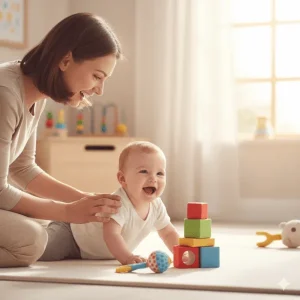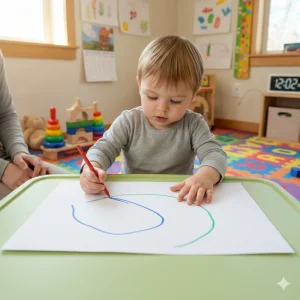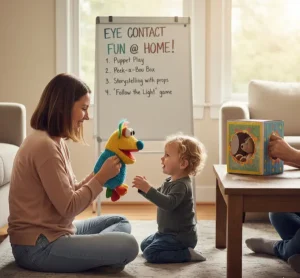Psychological Management and Interventions for Adults with ADHD
Last Updated: August 2, 2025
Attention Deficit Hyperactivity Disorder (ADHD) isn’t just a childhood condition—many adults live with it too. If you or someone you know struggles with persistent inattention, hyperactivity, or impulsivity, you’re not alone. ADHD in adults can impact various aspects of life, from work performance to personal relationships. That’s why understanding effective psychological management for adult ADHD is crucial. With the right support and strategies, it’s possible to gain better focus, emotional control, and confidence in everyday life.
Understanding and managing ADHD as an adult requires a tailored approach, and psychological management plays a crucial role. Effective psychological interventions can help improve focus, reduce impulsivity, and create a more balanced life. At Wellness Hub, we understand the unique challenges faced by adults with ADHD and are here to provide support and solutions that work.
Manage Your Child’s Behavior
Get expert help to manage tantrums, anger, or defiance. Online behavioral therapy that empowers better habits and emotional growth.
Understanding ADHD in Adults
Definition and Symptoms
Attention Deficit Hyperactivity Disorder (ADHD) is commonly associated with children, but it affects many adults as well. ADHD in adults can lead to a range of challenges, impacting both personal and professional aspects of life. Understanding ADHD’s effects and symptoms can help in managing the condition more effectively.
Know more: Understanding Behavioral Therapy: A Simple Guide for Parents
Overview of ADHD and Its Impact on Adults
ADHD in adults often manifests differently than in children. While the classic symptoms of ADHD—such as inattention, hyperactivity, and impulsivity—are still present, they may appear in less obvious ways. Adults with ADHD might struggle with maintaining focus on tasks, managing time efficiently, and controlling impulses in social or professional settings. This can lead to difficulties in maintaining relationships, achieving career goals, and managing daily responsibilities.
Common Symptoms
- Inattention: Adults with ADHD may find it challenging to concentrate on tasks, follow through on commitments, or stay organized. They might often forget important details or become easily distracted, leading to unfinished projects or missed deadlines.
- Hyperactivity-Impulsivity: Although hyperactivity might be less visible in adults, it can manifest as a constant sense of restlessness or difficulty sitting still for extended periods. Impulsivity can lead to hasty decisions, interruptions in conversations, or difficulty waiting for one’s turn.
- Combined Symptoms: Some adults experience a combination of inattention and hyperactivity-impulsivity. This mixed presentation can make managing daily life even more complex, requiring a multifaceted approach to treatment.
Diagnosis
How ADHD is Diagnosed in Adults
Diagnosing ADHD in adults involves a comprehensive assessment by a healthcare professional. This typically includes a detailed clinical interview, self-reports, and sometimes input from family members or close associates. The evaluation may also involve reviewing a person’s medical history and ruling out other potential causes for the symptoms.
Also read : Navigating Daily Challenges: Understanding ADHD in Adults
Importance of Professional Assessment and Accurate Diagnosis
Accurate diagnosis is crucial for effective management. Many symptoms of ADHD overlap with other conditions, such as anxiety or depression, making a professional assessment essential. A correct diagnosis helps in creating a tailored treatment plan that addresses the specific needs of the individual. At Wellness Hub, we emphasize the importance of seeking professional guidance to ensure a comprehensive and effective approach to managing ADHD.
Inattention
Characteristics of Inattention
Inattention is one of the core symptoms of ADHD and can significantly impact daily life. For adults with ADHD, inattention often means struggling to focus on tasks, staying organized, and remembering important details. Common signs include:
- Difficulty Focusing: Adults may find it challenging to concentrate on tasks for extended periods, leading to unfinished projects or frequent distractions.
- Forgetfulness: Often forgetting appointments, deadlines, or important details can disrupt both personal and professional responsibilities.
Psychological Management Techniques
Addressing inattention involves a variety of strategies that can help improve focus and organization. Here’s a look at some effective techniques:
Attention and Focus Enhancements
- Mindfulness Techniques: Mindfulness practices, such as mindful breathing and focused attention exercises, can enhance awareness and concentration. These techniques help in reducing mental clutter and improving focus on the present moment.
- Attention Training Exercises: Engaging in activities like puzzles or memory games can improve concentration and cognitive function. Regular practice of these exercises helps in strengthening attention span.
Read more: Top 10 Techniques for Managing Inattention in Adults with ADHD
Organizational Techniques
- Task Lists and Prioritization: Using to-do lists and prioritizing tasks can improve organization and productivity. Tools like the Eisenhower Matrix help in categorizing tasks by urgency and importance, ensuring that critical tasks are completed on time.
- Environmental Modifications: Creating a distraction-free workspace is crucial for maintaining focus. This includes reducing clutter, using noise-canceling headphones, and setting up a dedicated work area.
Time Management Techniques
- Time Blocking: Allocating specific times for tasks, including breaks, helps in maintaining focus and efficiency. Time blocking ensures that you dedicate uninterrupted time to important tasks.
- Pomodoro Technique: This method involves breaking work into intervals, such as 25-minute sessions followed by short breaks. This approach helps in managing time effectively and maintaining productivity throughout the day.
Behavioral Strategies
- Habit Formation: Developing consistent daily routines and habits can reduce the cognitive load of decision-making. Establishing regular schedules helps in improving focus and efficiency.
- Reward Systems: Implementing a reward system for completing tasks can motivate and reinforce positive behavior. Using reward charts or apps can provide a visual representation of progress and accomplishments.
Interventions and Therapies
- Behavioral Therapy Approaches: Cognitive Behavioral Therapy (CBT) for organizational skills can help in improving focus and managing distractions. Therapy sessions can provide personalized strategies and support to address specific challenges related to inattention.
- Skill Development: Training in executive function skills, such as planning and time management, can enhance organizational abilities and overall productivity.
- Counseling Support: Psychological counseling provides a space to address inattention challenges and develop coping strategies. Professional support can offer guidance and tools tailored to individual needs.
Hyperactivity-Impulsivity
Characteristics of Hyperactivity and Impulsivity
Hyperactivity and impulsivity are hallmark symptoms of ADHD in adults. These characteristics can significantly impact daily functioning and relationships. Key signs include:
- Restlessness: A constant sense of needing to move or be active. Adults may struggle to stay seated during meetings or have difficulty relaxing.
- Excessive Talking: Speaking rapidly or without regard for others’ responses, often interrupting conversations or dominating discussions.
- Impulsive Decisions: Acting on immediate urges without considering long-term consequences, such as making hasty purchases or decisions.
Psychological Management Techniques
To manage hyperactivity and impulsivity, several effective techniques can be employed:
Mindfulness and Relaxation
- Mindfulness Practices: Techniques such as meditation and deep breathing can help with self-awareness and impulse control. Mindfulness encourages focusing on the present moment, which can reduce impulsive reactions and enhance self-regulation.
- Relaxation Exercises: Progressive muscle relaxation and similar methods help in reducing physical restlessness. These exercises involve systematically tensing and then relaxing different muscle groups, promoting a sense of calm and control.
Impulse Control Strategies
- Pause Techniques: Techniques like counting to ten or practicing deep breathing before reacting can provide the necessary pause to think through decisions. This simple delay helps in managing impulsive behaviors and making more thoughtful choices.
- Behavioral Modification: Implementing reward systems and behavioral contracts can reinforce positive behaviors and control impulsive actions. Positive reinforcement, such as rewards for thoughtful decision-making, can encourage lasting changes.
Physical Activity
- Exercise Routines: Regular physical activity is crucial for managing restlessness. Engaging in daily workouts or physical hobbies can help channel excess energy and reduce hyperactivity.
- Movement Breaks: Incorporating scheduled breaks for physical activity, such as stretching or taking quick walks, can help manage restlessness during tasks. These breaks provide an opportunity to release built-up energy and refocus.
Interventions and Therapies
- Cognitive-Behavioral Interventions: Cognitive Behavioral Therapy (CBT) techniques are effective for addressing impulsive behaviors. CBT focuses on changing thought patterns and developing coping strategies to manage impulsivity and enhance self-control.
- Stress Management Techniques: Strategies such as relaxation techniques and stress management exercises help in reducing overall stress, which can mitigate impulsive behaviors. Managing stress effectively can lead to better impulse control and emotional regulation.
- Therapeutic Support: Counseling and therapeutic support offer tailored strategies and ongoing support for managing hyperactivity and impulsivity. A mental health professional can provide guidance and practical tools to address specific challenges.
Combined Type ADHD
Characteristics of Combined Type ADHD
Combined Type ADHD encompasses a mix of symptoms from both inattention and hyperactivity-impulsivity. This type can present a complex challenge as it combines the difficulties associated with each symptom category. Key characteristics include:
- Inattention: Difficulty sustaining focus, frequent forgetfulness, and struggles with organization.
- Hyperactivity-Impulsivity: Restlessness, excessive talking, and impulsive decision-making.
Managing Combined Type ADHD requires a comprehensive approach that addresses all aspects of the disorder.
Know more about this Navigating Daily Challenges: Understanding ADHD in Adults
Psychological Management Techniques
Integrated Strategies
- Comprehensive Planning: A holistic treatment plan that addresses both inattention and hyperactivity is essential. This involves using combined therapy approaches to target multiple symptoms simultaneously. For instance, incorporating techniques from both inattention and hyperactivity management can create a well-rounded treatment plan.
- Balanced Approach: It’s important to combine techniques from both the inattention and hyperactivity sections of this guide. This means using mindfulness exercises, organizational techniques, and impulse control strategies together to address the full range of symptoms.
Goal Setting
- SMART Goals: Setting SMART (Specific, Measurable, Achievable, Relevant, Time-bound) goals can help in managing Combined Type ADHD. For example, a SMART goal might be to complete a specific project by the end of the month using a detailed action plan.
- Regular Monitoring: Tracking progress is crucial. Periodic reviews can help in assessing the effectiveness of the strategies and making necessary adjustments to improve outcomes.
Customized Interventions
- Personalized Techniques: Tailoring strategies to fit individual needs ensures that the treatment plan is effective. Personalized treatment plans can address unique challenges and preferences, leading to better management of ADHD symptoms.
- Flexible Scheduling: Adapt interventions to fit changing needs. A flexible routine allows for adjustments based on what is working and what isn’t, ensuring that the approach remains effective over time.
Interventions and Therapies
- Multimodal Approaches: Utilizing a combination of therapies provides comprehensive management for Combined Type ADHD. Integrated treatment plans that include various therapeutic methods can address the complexity of symptoms.
- Support Systems: Engaging family, friends, and support groups can offer valuable support and encouragement. Building a strong support network can enhance the effectiveness of the treatment plan and provide emotional support.
- Community Resources: Accessing community resources and support networks specific to Combined Type ADHD can be beneficial. These resources might include local support groups, educational programs, and community services designed to help individuals manage ADHD.
General Strategies for Effective Management
Creating a Structured Environment
A structured environment is essential for managing ADHD effectively. Routines and organization help in creating stability and predictability, which can be particularly beneficial for individuals with ADHD.
- Importance of Routine and Structure: Establishing a consistent daily routine can significantly improve focus and reduce stress. Having a clear structure helps in managing time better and minimizes distractions.
- Tips for Organizing Daily Life and Work: Start by creating a stable routine. Schedule daily tasks and appointments in advance. Use tools like planners, reminders, and checklists to stay organized. For work, set specific goals and deadlines to keep track of progress. Implementing these strategies can make daily tasks more manageable and less overwhelming.
Building Support Networks
Support from family, friends, and professional networks plays a crucial role in managing ADHD effectively.
- Role of Family, Friends, and Support Groups: Building a support network is vital. Family and friends can provide emotional support and practical help, while support groups offer a sense of community and shared experience. Engaging with others who understand your challenges can provide encouragement and advice.
- Seeking Professional Help and Ongoing Therapy: Continuous counseling and therapy can offer ongoing support and strategies for managing ADHD. Professional help can provide personalized guidance and address any evolving challenges. Regular sessions with a therapist or counselor can enhance your overall management plan.
Self-Care and Lifestyle Adjustments
Maintaining physical health and well-being is essential for effective ADHD management. Lifestyle adjustments can make a significant difference in managing symptoms and improving quality of life.
- Importance of Physical Health and Well-Being: Prioritizing physical health through regular exercise, a balanced diet, and sufficient sleep can have a positive impact on ADHD symptoms. Healthy lifestyle habits contribute to overall well-being and can help in managing stress and improving focus.
- Strategies for Maintaining a Balanced Lifestyle: Achieving work-life balance is key. Make time for relaxation and hobbies, and ensure you have a support system to help manage stress. Setting boundaries between work and personal life can prevent burnout and promote a healthier, more balanced lifestyle.
Conclusion
Managing ADHD involves using various strategies to address your specific needs. For inattention, try techniques like mindfulness and organizing your tasks. If you struggle with hyperactivity or impulsivity, relaxation exercises and regular physical activity can help. For Combined Type ADHD, use a mix of these methods for a balanced approach.
Professional help can make a big difference. Therapists can offer personalized advice and ongoing support. Combining these strategies with expert guidance will help you manage ADHD more effectively. For more support and resources, Wellness Hub is here to help you find the right solutions for your needs.
Frequently Asked Questions:
1: What are the main symptoms of ADHD in adults?
ADHD in adults often includes symptoms such as inattention, hyperactivity, and impulsivity. Common signs of inattention are difficulty focusing and forgetfulness. Hyperactivity can manifest as restlessness and excessive talking, while impulsivity may lead to hasty decisions without considering the consequences. Understanding these symptoms can help in managing ADHD effectively.
2: How can mindfulness help manage ADHD symptoms?
Mindfulness practices, such as meditation and deep breathing exercises, can improve attention and control impulsivity. These techniques help increase self-awareness and reduce stress, making it easier to manage symptoms like restlessness and difficulty focusing. Incorporating mindfulness into your daily routine can enhance overall ADHD management.
3: What are some effective strategies for improving focus in adults with ADHD?
Effective strategies for improving focus include using attention training exercises like puzzles and memory games, creating a structured environment with task lists and prioritization, and employing time management techniques such as the Pomodoro Technique. Additionally, reducing environmental distractions and maintaining a stable routine can help boost concentration.
4: How can physical activity benefit adults with ADHD?
Regular physical activity, such as daily workouts or physical hobbies, helps manage restlessness and improve focus. Incorporating movement breaks during tasks, like stretching or quick walks, can also be beneficial. Exercise plays a key role in reducing hyperactivity and impulsivity in adults with ADHD.
5: What is the importance of professional help in managing ADHD?
Professional help is crucial for managing ADHD effectively. A mental health professional can provide a precise diagnosis, develop personalized treatment plans, and offer ongoing support through counseling and therapy. Seeking expert guidance ensures a comprehensive approach to managing ADHD symptoms and improving overall quality of life.
6: How can setting SMART goals aid in managing ADHD?
Setting SMART goals—Specific, Measurable, Achievable, Relevant, and Time-bound—helps in creating clear, actionable objectives. This approach ensures that goals are well-defined and attainable, which can improve motivation and track progress. Regularly reviewing and adjusting these goals can further enhance ADHD management.
7: What role do support networks play in managing ADHD?
Support networks, including family, friends, and support groups, are essential for managing ADHD. They provide emotional support, practical advice, and encouragement. Engaging with support systems can help you stay motivated and committed to your treatment plan, making it easier to manage ADHD effectively.
8: How can I create a structured environment to manage ADHD?
Creating a structured environment involves establishing routines and organizing your daily life. Use task lists and prioritization techniques to stay on track, and modify your workspace to minimize distractions. A stable routine and organized environment can significantly improve focus and productivity for adults with ADHD.
9: What are multimodal approaches in ADHD management?
Multimodal approaches combine various therapies and strategies for comprehensive ADHD management. This may include behavioral therapy, medication, mindfulness practices, and organizational techniques. A multimodal approach ensures that all aspects of ADHD are addressed, leading to more effective management and better overall outcomes.
10: How can Wellness Hub assist with ADHD management?
Wellness Hub offers a range of services, including counseling and therapy, to help individuals manage ADHD effectively. Our expert team provides personalized treatment plans and ongoing support to address both inattention and hyperactivity-impulsivity.
About Author:
Lasya Vooturi
Clinical Psychologist (A) and Behavioral Therapist
Lasya holds a Professional Diploma in Clinical Psychology from Amity University, where she deepened her understanding of psychological principles from March 2023 to March 2024. With over a year of dedicated experience as a Behavioral Therapist, Lasya has honed her skills in applying effective therapy techniques tailored to individual needs. Fluent in Telugu, Hindi, and English, she is adept at connecting with a diverse range of clients, ensuring comprehensive communication and understanding. Lasya’s approach is grounded in empathy and scientific rigor, making her a trusted ally in navigating mental health challenges.
Book your Free Consultation Today
Parent/Caregiver Info:
Client’s Details:
* Error Message








